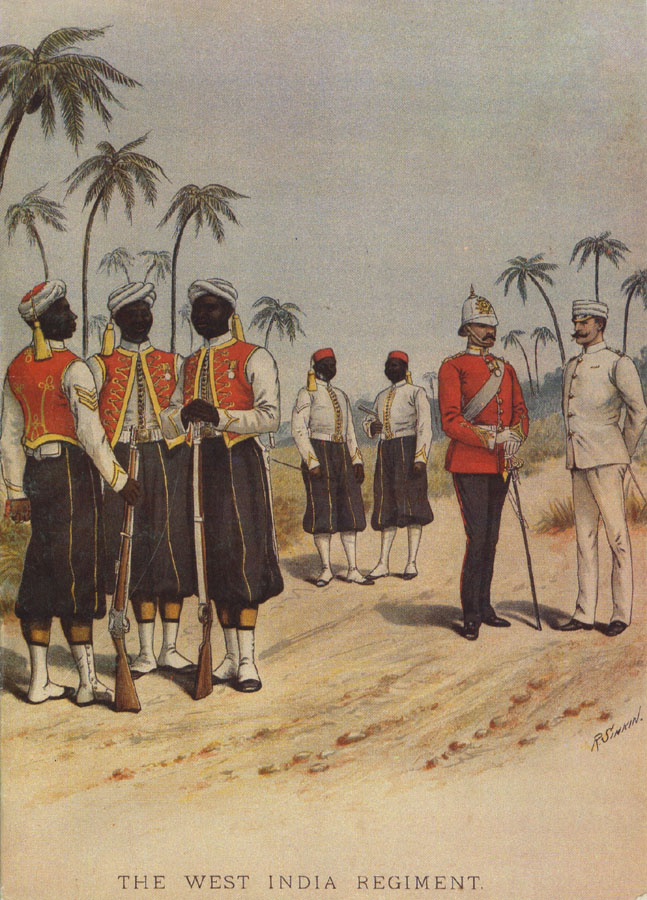Black History Beyond Slavery

Black History Beyond Slavery
People of African descent in the British Army, 1795-1914
The stories of thousands of soldiers of African descent are often neglected from mainstream narratives of British history presented through the national curriculum. By using their AHRC-funded research to create free online learning resources for school children, Professor David Lambert and Professor Tim Lockley are providing an alternative narrative that foregrounds their forgotten stories and offers students a historical perspective in which people of African descent are complex agents within British history, rather than just subjects of imperialism and exploitation.
The challenge
Whilst British imperial history and the development of the British Empire is an aspect of the GCSE history curriculum, very little attention is paid to the West India Regiments (WIRs), military units made up almost entirely of men and boys of African descent that were part of the regular British army for more than a century before WW1. Professor Lambert and Professor Lockley’s research aimed to refocus the lens through which this history is viewed and taught, enabling students to critically engage with the legacies of the Empire and the trans-Atlantic slave trade.
Our approach
By creating an engaging set of online resources for schools, Professor Lambert and Professor Lockley brought new histories into the curriculum for Key Stage 3 pupils, including:
-
An introduction to the Caribbean region
-
Why the British Army created the West Indian Regiments (WIRs)
-
Opposition to the WIRs from slaveholders
-
The day-to-day experiences of black soldiers, including their treatment
-
How the WIRs helped to defend and expand the British Empire
-
How the image of the regiments has changed over time
Alongside this, the team created a new exhibition for the Museum of London Docklands. ‘Fighting for Empire’ told the story of the WIRs, and the men and boys of African descent that made up their ranks before the First World War. This included Samuel Hodge, the first African-Caribbean soldier to win the Victoria Cross (in 1866).

Our impact
Both the online resources for schools and the public exhibition have been very popular, engaging students, teachers and the public with this history and research. The web resource pack received over 25,000 visits in a single year and provided the basis for workshops that showed 50 teachers how to present these stories as an integral aspect of British history. Participants found that the online resources gave them the confidence to teach previously untold topics in an engaging and meaningful way.
The public exhibition also made a significant impact on those who visited. 94% of those surveyed reported a greater understanding of the WIRs, whilst most admitted that they had not known that Africans had served in the British Army before 1914. This exhibition led to a collaborative event with the Windrush Foundation for community organisations and the public, recognising the role of African-Caribbean men in British war efforts and their absence from commemorative events. Professor Lambert and Professor Lockley’s work has created new resources contributing to a more inclusive curriculum that recognises the agency and contribution of the WIRs.

What is research impact?
Discover why it matters

More impact stories
Explore other work from History at Warwick
